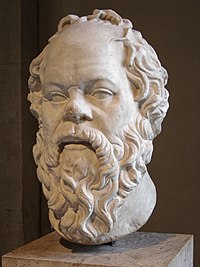History of Islamic Philosophy

Islamic Philosophy refers to the study of philosophical ideas and concepts within the Islamic world. This covers a wide range of topics and ideas, including theology, metaphysics, ethics, logic, and epistemology.
In the early years of Islam, the focus was on religious teachings and practices. However, as Muslims came into contact with the Greek and Roman worlds, they began to explore and develop their own philosophical ideas.
One of the earliest Muslim philosophers was Al-Kindi, who lived in the 9th century. He was greatly influenced by the works of Aristotle and was one of the first to translate many of these works into Arabic.
Another famous Muslim philosopher was Al-Farabi, who lived in the 10th century. He combined Greek philosophy with Islamic theology, and argued that the ultimate goal of human life was to achieve happiness and develop virtues.
In the 11th century, the Persian scholar Al-Ghazali came to prominence. He challenged many of the ideas of earlier Muslim philosophers, arguing that philosophical speculation alone was not sufficient to understand the nature of God and the universe.
After Al-Ghazali, Islamic philosophy continued to flourish in certain parts of the Muslim world, although it also faced challenges from orthodox religious authorities who saw it as a threat to traditional theology.
Today, Islamic philosophy continues to be studied and debated in Muslim countries and around the world. It has had a significant impact not only on Islamic thought but also on the broader tradition of philosophy in the West.
In the early years of Islam, the focus was on religious teachings and practices. However, as Muslims came into contact with the Greek and Roman worlds, they began to explore and develop their own philosophical ideas.
One of the earliest Muslim philosophers was Al-Kindi, who lived in the 9th century. He was greatly influenced by the works of Aristotle and was one of the first to translate many of these works into Arabic.
Another famous Muslim philosopher was Al-Farabi, who lived in the 10th century. He combined Greek philosophy with Islamic theology, and argued that the ultimate goal of human life was to achieve happiness and develop virtues.
In the 11th century, the Persian scholar Al-Ghazali came to prominence. He challenged many of the ideas of earlier Muslim philosophers, arguing that philosophical speculation alone was not sufficient to understand the nature of God and the universe.
After Al-Ghazali, Islamic philosophy continued to flourish in certain parts of the Muslim world, although it also faced challenges from orthodox religious authorities who saw it as a threat to traditional theology.
Today, Islamic philosophy continues to be studied and debated in Muslim countries and around the world. It has had a significant impact not only on Islamic thought but also on the broader tradition of philosophy in the West.
